- Home
- Chris Ryan
Tenth Man Down gs-4
Tenth Man Down gs-4 Read online
Tenth Man Down
( Geordie Sharp - 4 )
Chris Ryan
When an SAS team is sent to train government troops in Karmanga, a poverty-stricken and war-torn republic in the dark heart of southern Africa, Geordie Sharp is caught up un the most dangerous and difficult assignment of his military career.
When the SAS men see that the rebels are boosted by ex-US Navy SEAL mercenaries, they begin to sense a hidden agenda, and they know that things are going to get messy.
From the author of more than a dozen Sunday Times top ten bestselling thrillers, Tenth Man Down is a pulse-pounding story that sinks its teeth in and doesn't let go.
Chris Ryan
Tenth Man Down
About the Author
Chris Ryan was born near Newcastle in 1961. He joined the SAS in 1984. During his ten years he was involved in overt and covert operations and was also Sniper team commander of the anti-terrorist team. During the Gulf War, Chris was the only member of an eight man team to escape from Iraq; three colleagues were killed and four captured. It was the longest escape and evasion in the history of the SAS. For this he was awarded the Military medal. For the last two years he has trained potential recruits for the SAS.
He wrote about his experiences in the bestseller The One That Got Away (1995) which was also adapted for the screen. He is also the author of the bestsellers Stand By, Stand By (1996), Zero Option (1997), The Kremlin Device (1998), The Hit List (2000), The Watchman (2001), Land of Fire (2002), Greed (2003), The Increment (2004), Blackout (2005), Ultimate Weapon (2006) and Chris Ryan’s SAS Fitness Book (2001).
He lectures in business motivation and security and is currently working as a bodyguard in America.
Brian
Able man, somewhat unruly, and very ill to tame.
The Border Reiver’s Philosophy
I would have none think that I call them thieves
The freebooter ventures both life and limb,
Good wife, and bairn, and every other thing;
He must do so, or else must starve and die,
For all his livelihood comes of the enemie.
ACKNOWLEDGEMENTS
I wish to give special thanks to all my family and friends for their patience and understanding. To my agent, Barbara Levy; also to Mark Booth, Liz Rowlinson, Katie White and Rachael Healey and all the team at Century.
WEAPONS
203 — Combination 5.56 calibre automatic rifle (top barrel) and 40 mm grenade launcher below
.50 — Heavy machine gun
AK47 — Russian-made 7.62 calibre automatic rifle
Colt .45 — American automatic pistol
Galil — Israeli-made 7.62 automatic rifle
Milan post — Vehicle-mounted missile launcher
RPG7 — Russian-made rocket launcher
ONE
Typical Welsh autumn weather. The rain was just heavy enough to be annoying. If I kept the wipers going, even intermittently, they created smears, and whenever I switched them off, the windscreen soon became thickly beaded with water. Driving in those conditions was a pain. Tim was fidgeting about, twisting in his seat, punching the buttons on the stereo. Instead of looking out of the window and taking an interest in the mountains, he kept fiddling with the sound system, trying to get track five on his new Robbie Williams CD. There was something wrong with the player, which kept stalling, but he wouldn’t let it alone, so we got endless jumping of tracks and burst after burst of disjointed screeching.
But although his restlessness was distracting, I wasn’t letting it annoy me, because I knew it sprang from nerves. We hadn’t met for nearly six months, and he wasn’t at ease with me, any more than I was with him. Now I had the chance, I really wanted to get through to him, and I knew that if I talked too much I’d only make matters worse. So I told myself to stay cool, and concentrated on the road, now and then looking down sideways at his close-cropped blond head.
Because I saw him only after long intervals, whenever we did get together I was always surprised at how he’d changed. Now that he’d just turned ten, I realised how much of his mother he had in his looks: the same blue eyes and clean profile, with forehead, nose and jaw all straight and in good proportion. His hands and fingers were mine in miniature; they’d grown a lot, and looked pretty useful.
What was I doing, driving out into the Brecon Beacons with some sandwiches I’d got from Marks & Sparks, which I aimed to eat on the summit of Pen-y-Fan, with this son I hardly knew? Even I wasn’t sure. What I did know was that I was seriously ill. I knew that after this school holiday I might never see Tim again. But did I really imagine that, in one afternoon, I could influence the rest of his life? Did I really hope that he’d follow my example and go for an army career? I don’t think so. Part of me wanted him to find an easier way of making a living. Perhaps he should try to become a doctor? A lawyer? A teacher? I couldn’t wish him a road as hard as the one I’d travelled myself.
Looking back, I realise those vague ideas were at the back of my mind. At that moment, while I was still capable of climbing the hills, all I wanted was that Tim should see the country in which my SAS career had begun. In particular I wanted to introduce him to Pen-y-Fan, the mountain whose silhouette is supposed to be graven on every Special Forces man’s heart. Whatever profession he might take up in the end, I wanted him to become an open-air person. I wanted to pass on to him my feeling for the hills. I wanted him to get some idea of what my service career had meant to me.
Above all, I wanted him to know what had happened in Kamanga. I suppose I was trying to justify my conduct there — but only a shrink could have explained why I wanted to pour everything out to a ten-year-old.
After a while I couldn’t stand the racket from the stereo any longer, and said, ‘Eh, give over with that. The player’s messed up. And anyway, we’re nearly there.’
Obediently Tim hit the off button and turned to look out of the window. I didn’t sense any hostility in him: as I say, he was just covering his shyness until he got the measure of me. Back in my flat we’d already had stilted conversations about his school and his teachers. English was his best subject, he said: he liked writing, and had just done an essay on family life. I didn’t fancy asking exactly what he’d said. An easier area was football: he was obviously showing promise as a striker, and as a fan he’d transferred his affections from Chelsea to Arsenal. He was tough on the subject of football hooligans, who he thought were the pits. We’d also had a run-down on his home computer, compared notes about the Internet and discussed digital TV, but we’d exhausted every subject quite quickly.
Now, suddenly, he turned his attention to our surroundings, and said indignantly, ‘Hey, Dad, it’s raining out there. We’re not going to walk in this, are we? And boy, are these hills steep!’
I laughed, and said, ‘You wait till we’re on them! They’ll be steeper than the ones at home.’
‘Oh, sure!’
His voice had a Northern Irish twang all right, but what else could I expect? For six years now, since Kath’s death, he’d lived with her parents in the well-to-do eastern suburbs of Belfast. His school was there, his mates were there. Northern Ireland was his environment.
‘Pity about the cloud,’ I said. ‘But it’s lifting. I think we’re going to be lucky.’
A few minutes later we came down to the Storey Arms, once a pub, now an adventure centre, and pulled up in the car park opposite. I opened the back of the car, and we started to sort out our gear. Once we were in the open, the rain didn’t seem so bad. It was only drizzle, really.
On that dull morning there were only three other vehicles on the hard standing, one of them a zebra-striped minibus with a party of hikers, girls and boys, disembarking from it. Tim must have s
een me staring at it, because he said, ‘What’s the matter, Dad?’
‘It’s just those black and white stripes. They reminded me of something. When we get to the top, I’ll tell you.’ And to deflect his curiosity, I asked, ‘Boots okay?’
‘Sure and all.’ He looked down at his new green-and-grey Goretex ankle-length trainers and turned his feet in and out to show them off.
‘We’re all set, then.’ I locked the car and pocketed the key. ‘Let’s go.’
My small day-sack contained a minimum of kit: our picnic lunch, a water bottle, two waterproofs and a sweater for each of us, plus a spare pair of socks for Tim. The whole thing can’t have weighed more than ten pounds, yet as soon as we started up the steep track alongside the wood, it began to feel full of lead. Jesus! I thought. Oh for the days when I used to run up here with a load of bricks in my Bergen.
For a while Tim didn’t notice that I was labouring. He was excited by the climb and skipped on ahead. I liked the athletic way he moved, and laughed to myself when he turned round to shout and tell me to hurry up. But soon I was sweating and panting too much to see the funny side of anything, and I had to call a halt.
‘Take it easy,’ I called, sitting against a bank. ‘Let’s be like the tortoise, slow but sure.’
‘Dad,’ said Tim, looking up at me, ‘how old are you?’
‘Ninety-nine.’ I pretended to be offended. ‘And mind your own business.’ Then I laughed, and said, ‘No — I’m nearly forty.’
‘That’s not very old.’
‘Old enough. Four times what you are.’
Still he was looking at me. ‘But you look nearly as old as Gramp. Your hair’s going grey.’
‘Thanks! That’s because I’ve had a hard life. Wait till we get a bit higher, and I’ll tell you a few things about it.’
‘Why’s your face so yellow?’
‘Must be the African sun.’
So began a strange but rewarding climb. Somehow I’d gained Tim’s full attention and got him hanging on my words. So, every time we slowly climbed a few hundred feet, I’d call a halt and tell another story about SAS operations — in Libya, Colombia, the Gulf, Ulster. Without planning it, I found I was working backwards through my career, and when we reached the obelisk, about halfway to the summit, I’d got to the point of explaining about SAS selection courses, and how I’d been over this very route hundreds of times, first training for my own selection, then training others.
We sat down by the obelisk, which is a memorial to Tommy Jones, a boy who got lost in the mist trying to cross the hill from one farm to another, and never reached home.
‘It was twenty-nine days before anyone knew what had become of him,’ I said. ‘Then they found him curled up in this hollow, where the pillar is now.’
‘Was he asleep?’
‘No, no. He was dead. He’d died of exposure that first night. That’s why you mustn’t ever go into the hills without a compass.’
Tim listened intently as I told the story. Then, looking round, he asked, ‘Why aren’t there any trees up here?’
‘It’s too high, and too cold. The higher you go, the colder it gets. Also, there’s hardly any soil.’ I scuffed at the grass with the toe of my boot and showed him that rock lay just beneath the roots. Then on an impulse I asked, ‘D’you remember your mum?’
He shook his head. ‘Not really. Gran’s got a picture of her, that’s all.’ After a pause, he said, ‘Dad — why did she die?’
‘I know how she died. She was killed by a terrorist bomb, out shopping in Belfast, in the city centre. But as to why — that’s a difficult question.’
‘Was it because you were in the army?’
‘No, no. They wouldn’t have known your mum was married to a soldier. She wasn’t a target. The bomb went off prematurely. It was an own-goal. The bomber was killed, along with five innocent civilians.’
‘Was it because we’re Prots, then?’
‘It was a bit to do with religion, yes. I’m afraid there’s always going to be some people who hate other people, just because of what they believe in. The bomber was a Catholic, but he wasn’t targeting your mother specially.’
To change the subject I waved around us, and said, ‘You might not believe it, but I know every rock, every bend on this path. Every yard of it holds a memory for me. Right here, by this big slab, a guy sat on an adder and got bitten in the backside. Over there, a fellow called Richard came off his quad bike and broke his leg. Now, look at that!’
Across a valley a group of eight men had appeared, walking hard in single file up a ridge, silhouetted against the cloud. They were wearing DPMs, and from their fast pace and strained attitude — leaning forward to take the weight of their Bergens — I could tell they were under pressure, hurrying to reach an RV inside the time limit.
‘Just what I was telling you,’ I said. ‘Those guys are training for selection.’
‘Where are they going?’
‘They’ve probably got to get round a set course in a given time, calling at check-points as they go.’
The sight almost made me feel young again. Yet no amount of fresh air and fine scenery could banish the knowledge that I was in lousy shape — and not just short of breath, but afflicted by a deep, leaden heaviness all over my body, and a feeling that I wanted to throw up, even though there was nothing to get rid of. Already I’d twice thought I was going to have to call off our ascent, but somehow, each time, I’d got going again.
I looked down at Tim and saw he was thinking. I couldn’t help comparing him with my own ten-year-old self. At his age I was constantly fighting to defend myself against school bullies. Most days they’d pick on someone, and provoke him so the fight took place on the way out of school, where all the other kids were lined up to watch. Tim never mentioned fights; besides Kath’s looks, he’d evidently inherited her calm temperament, and that pleased me.
Presently, he asked, ‘Dad — it’s wrong to kill people, isn’t it?’
‘In peacetime, yes. But in war it’s different. You sometimes have to kill the bad guys, to stop them killing you.’
‘But people are still getting killed at home. There isn’t a war on now.’
‘Well, in a way there is. There was then, anyway.’
I felt his next question coming.
‘How many people have you killed, Dad?’
‘Not many at all.’
‘How many, though?’
‘I’d have to make a count. I’ve never tried to work it out. Often in a battle, if one of the enemy gets dropped, you can’t tell who’s done it. Guys go down, but there’s so much noise and confusion you don’t know where the bullets have come from. You haven’t got time to worry. All you know is, it’s going to be them or you. Let’s go on a bit while I think.’
Still Tim was staring at me curiously. Then he asked, ‘Are you a colonel, or what?’
‘A colonel!’ I laughed. ‘Heavens no. A colonel’s a rupert.’
‘What’s a rupert?’
‘An officer. I’m a warrant officer, a sergeant-major. It’s people like me who run the show.’
‘What do ruperts do, then?’
‘Make a lot of noise and sign forms.’
‘I’ve got a friend called Rupert. Does that mean his father’s a colonel?’
‘Oh no. It’s only an army word — a kind of slang. A rupert’s any officer, from a second lieutenant to a general.’
Suddenly I spotted movement in the valley beneath us. Two RAF Tornados were heading almost straight for us. Their dappled camouflage made them hard to pick out against the variegated background. They’d slipped round a shoulder of the mountain in a tight turn, below our level, and were climbing hard in our direction.
‘Look out!’ I shouted. ‘This is going to be noisy. Cover your ears!’
I was just in time. If we hadn’t been prepared, the jets would have given us a bad fright. Even with hands clasped to our heads we were rocked by the thunderclap of their engines as they ro
ared past, with fire blazing from the tails as their re-heats blasted them upwards and over the ridge.
For a moment Tim was shaken, but he recovered immediately and said, ‘That’s what I want to do.’
‘Be a pilot? Well, if you could hack it, at least you’d see some action. The fast-jet boys are always the ones who get deployed.’
We talked about the G-forces the pilots would be experiencing — how, if you pull five G, you can hardly lift your hands off your knees, your head weighs the equivalent of fifty pounds, and all your blood tries to run down to your feet, so that only the special suit you’re wearing prevents you passing out.
By then the clouds were thinning and breaking, and I pointed out various landmarks as they came into sight. At last we skirted Cribben and moved out on to the short, dry grass that sloped gently up to the summit. I almost said, ‘Race you to the top,’ but I knew I couldn’t accelerate to save my life. Tim was ahead anyway, so I just called, ‘On you go. I’ll see you up there.’
Five minutes later we were sitting in bright sunshine on top of the mountain, where the trig stone used to stand, with a 360-degree panorama spread out below us. I felt a little flutter of elation at having reached the highest point and seeing all the familiar landmarks, even if it was for the last time.
‘Chicken or BLT?’ I said, breaking out the sandwiches.
‘What’s BLT?’
‘Bacon, lettuce and tomato, with mayonnaise.’
‘Chicken, please.’
‘There you go.’ I handed him the packet, along with a can of Coke. ‘Get that down you, and I’ll tell you about the witch doctor.’
‘What’s a witch doctor?’
‘Someone who puts spells on you.’
‘Why does he do it, though?’
‘Well — for money. He’s like a combination of doctor and magician. People pay him to cure them of diseases and suchlike.’

 Global Strike
Global Strike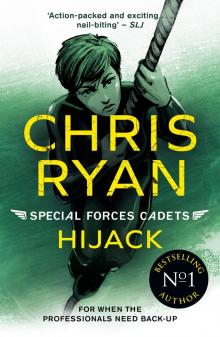 Hijack
Hijack Special Forces Cadets 2
Special Forces Cadets 2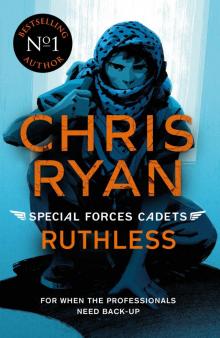 Ruthless
Ruthless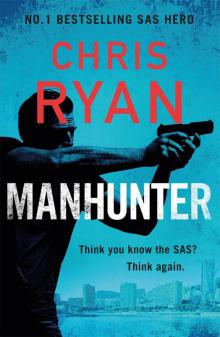 Manhunter
Manhunter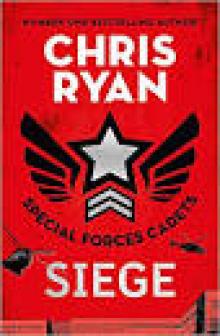 Special Forces Cadets 1
Special Forces Cadets 1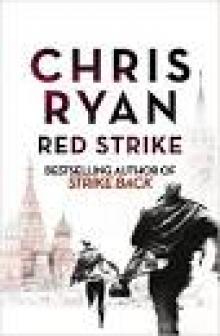 Red Strike
Red Strike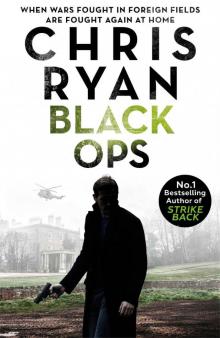 Black Ops
Black Ops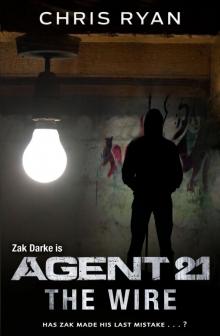 Agent 21: The Wire
Agent 21: The Wire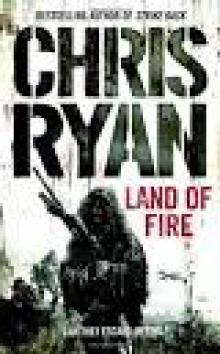 Land of Fire
Land of Fire Alpha Force: Fault Line
Alpha Force: Fault Line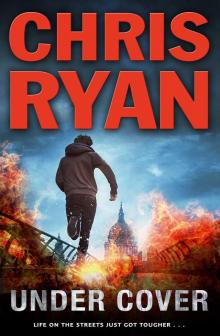 Under Cover (Agent 21)
Under Cover (Agent 21)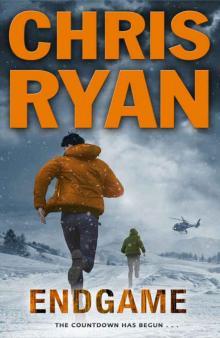 Endgame (Agent 21)
Endgame (Agent 21) Red Centre
Red Centre Blackout
Blackout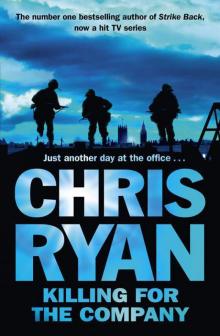 Killing for the Company
Killing for the Company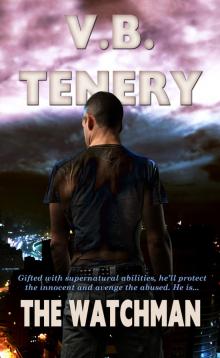 The Watchman
The Watchman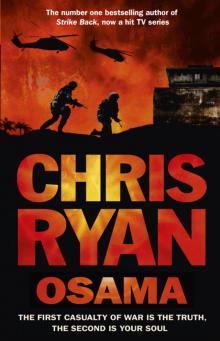 Osama
Osama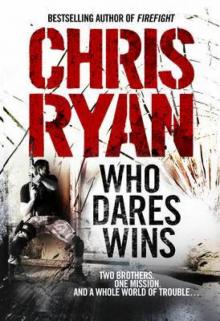 Who Dares Wins
Who Dares Wins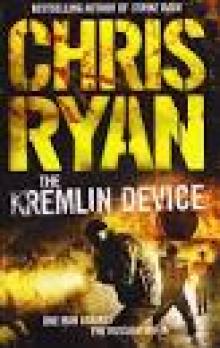 The Kremlin Device
The Kremlin Device Hunter Killer
Hunter Killer Alpha Force: Untouchable
Alpha Force: Untouchable Stand By Stand By
Stand By Stand By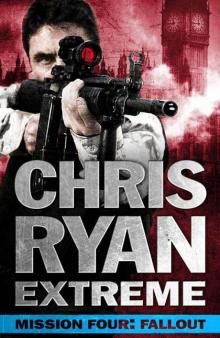 Chris Ryan Extreme: Hard Target: Mission Four: Fallout
Chris Ryan Extreme: Hard Target: Mission Four: Fallout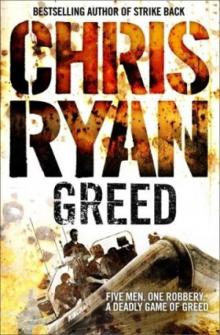 Greed mb-1
Greed mb-1 Alpha Force: Desert Pursuit
Alpha Force: Desert Pursuit Strike Back
Strike Back Greed
Greed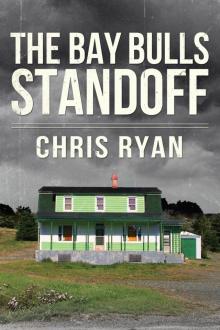 The Bay Bulls Standoff
The Bay Bulls Standoff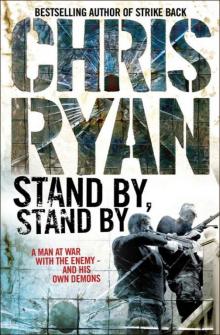 Stand By, Stand By gs-1
Stand By, Stand By gs-1 Outbreak
Outbreak Hunted
Hunted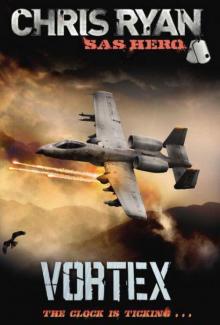 Vortex cr-4
Vortex cr-4 Rat-Catcher
Rat-Catcher Vortex
Vortex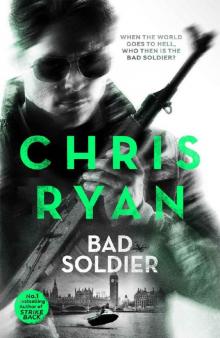 Bad Soldier
Bad Soldier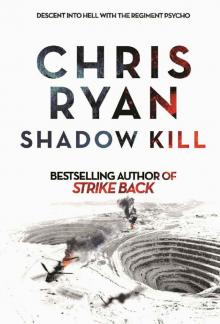 Shadow Kill: A Strikeback Novel
Shadow Kill: A Strikeback Novel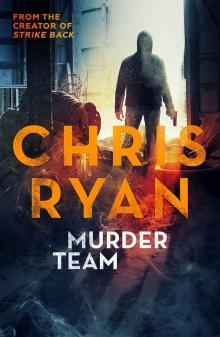 Murder Team (Kindle Single)
Murder Team (Kindle Single) One Good Turn
One Good Turn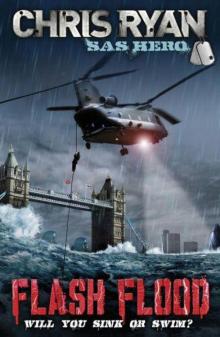 Flash Flood cr-1
Flash Flood cr-1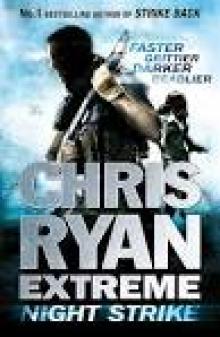 Night Strike
Night Strike Wildfire
Wildfire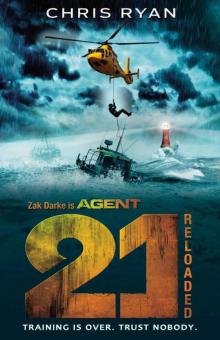 Agent 21: Reloaded: Book 2
Agent 21: Reloaded: Book 2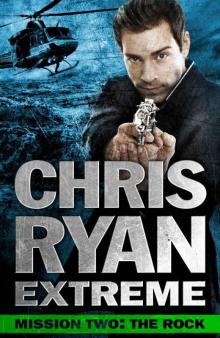 Chris Ryan Extreme: Hard Target: Mission Two: The Rock
Chris Ryan Extreme: Hard Target: Mission Two: The Rock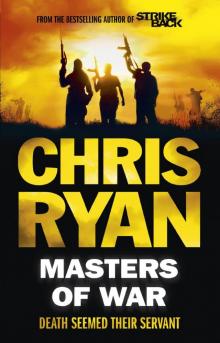 Masters of War
Masters of War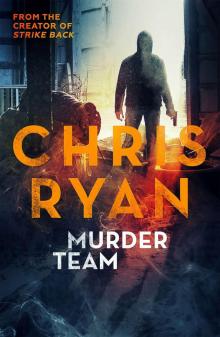 Murder Team
Murder Team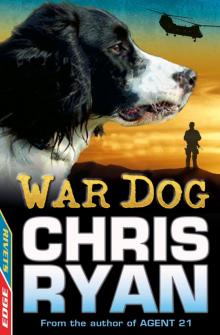 War Dog
War Dog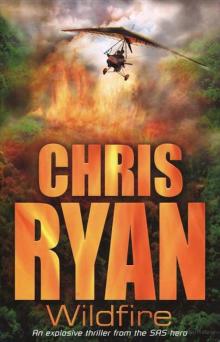 Wildfire cr-2
Wildfire cr-2 Survival
Survival The One That Got Away - Junior edition
The One That Got Away - Junior edition The Hit List
The Hit List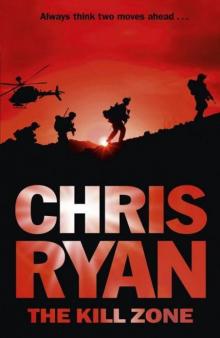 The Kill Zone
The Kill Zone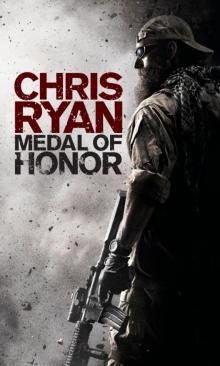 Medal of Honor
Medal of Honor Battleground
Battleground Twister
Twister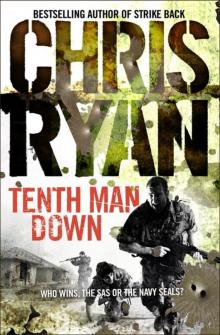 Tenth Man Down gs-4
Tenth Man Down gs-4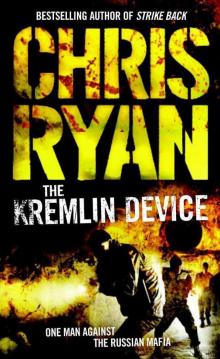 The Kremlin Device gs-3
The Kremlin Device gs-3 Hostage
Hostage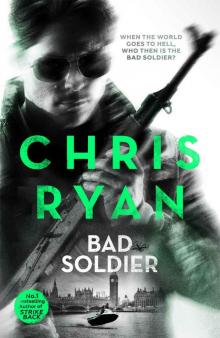 Bad Soldier: Danny Black Thriller 4
Bad Soldier: Danny Black Thriller 4 Alpha Force: Blood Money
Alpha Force: Blood Money Firefight
Firefight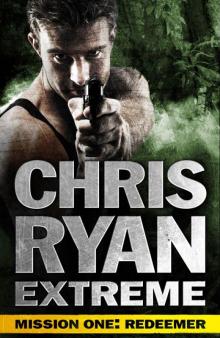 Chris Ryan Extreme: Hard Target: Mission One: Redeemer
Chris Ryan Extreme: Hard Target: Mission One: Redeemer Hit List
Hit List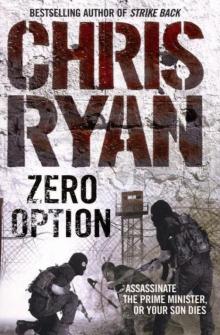 Zero Option gs-2
Zero Option gs-2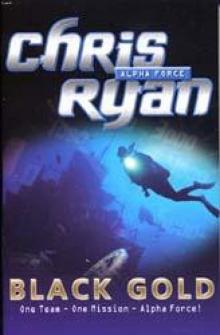 Black Gold
Black Gold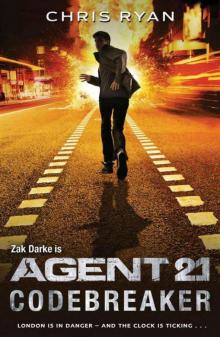 Agent 21: Codebreaker: Book 3
Agent 21: Codebreaker: Book 3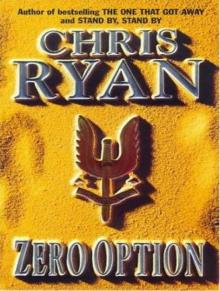 Zero Option
Zero Option Ultimate Weapon
Ultimate Weapon Tenth Man Down
Tenth Man Down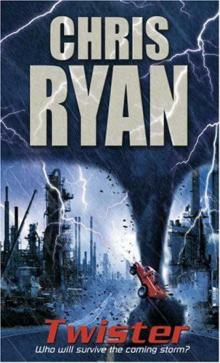 Twister cr-5
Twister cr-5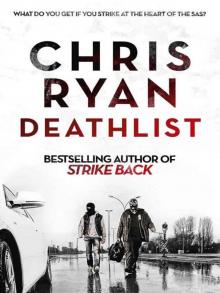 Deathlist
Deathlist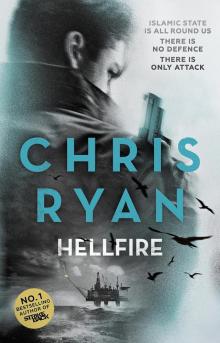 Hellfire
Hellfire Flash Flood
Flash Flood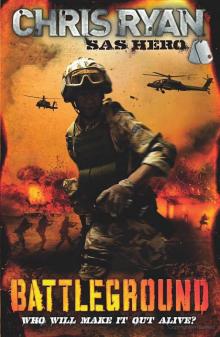 Battleground cr-6
Battleground cr-6 The Increment
The Increment